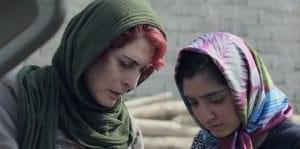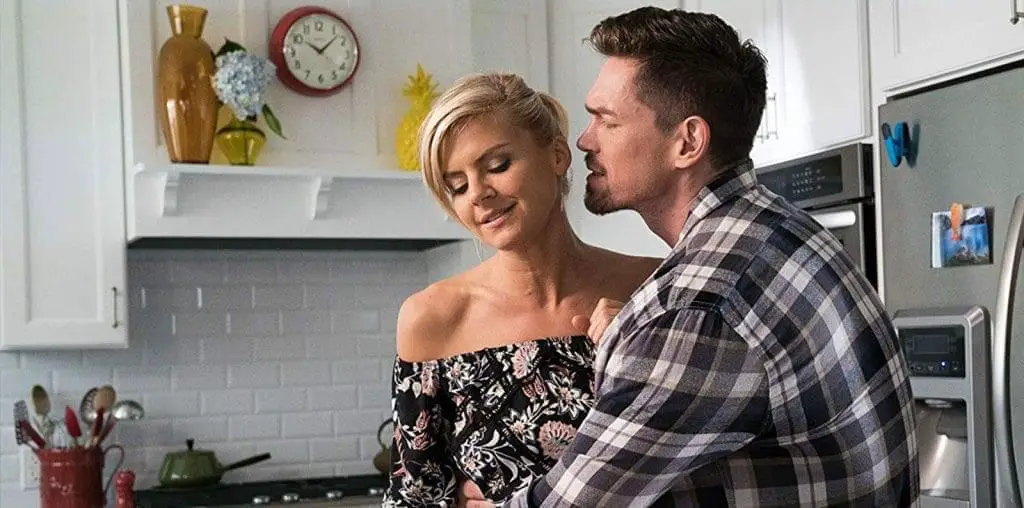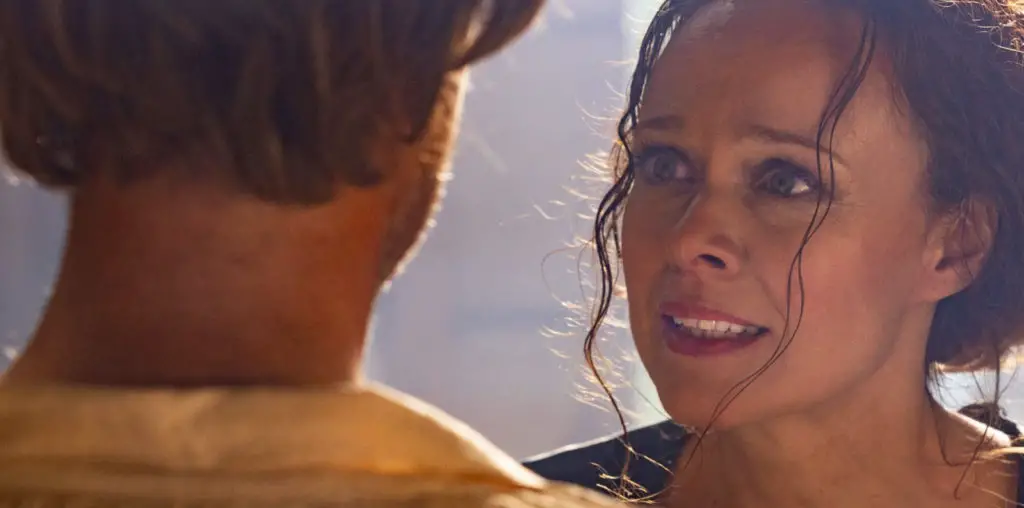
Jafar Panahi is a very talented, well-loved Iranian filmmaker whose first feature film, The White Balloon won the Camera D’Or at Cannes in 1977. This is the only film of his that is allowed to be screened in the country. Due to the many restrictions the Iranian government places on filmmakers, Panahi went to prison twice. He currently is under a 20 year ban of releasing films, so 3 Faces and his three previous films have all been made without authorization. So, the film in and of itself is an act of rebellion.
It’s only fitting that this literal act of rebellion would center on a fictional one. At the beginning of the film, we see a video taken with a phone camera by a young woman named Marziyeh Rezaei (who stars as herself, or…a version of herself). She is frantically trying to reach famous Iranian actress Behnaz Jafari (also as herself). She agreed to get married if it meant that afterwards she could go to the acting conservatory in Tehran. Her family and her fiance’s family disapprove to an extreme degree. In the cell phone video that is sent to both Jafari and Panahi (who also stars in the film as himself), Marziyeh leads them to believe there was a rather extreme emergency.

“She agreed to get married if it meant that afterwards she could go to the acting conservatory in Tehran…”
Behnaz leaves the set of the film she’s working on and, accompanied by Panahi, drives to a tiny village in Northern Iran where Marziyeh lives. Just getting to the village in and of itself is a journey. There is only one tiny road that only fits one car down it at a time. The road is often blocked by people, sheep, and in one case, a stud bull with “golden balls.”
Once Panahi and Jafari reach the village, they have a very hard time finding anyone associated with Marziyeh, until her little sister approaches them and leads them to her family’s home. She has been missing for three days and everyone is extremely upset, but especially her brother who is screaming about how crazy it is that she wants to study.
Behnaz and Marziyeh are the first 2 faces of the 3. The 3rd is a woman named Shahrzad, who was actually an actress in pre-revolution Iran. In the film, she portrays herself, although, due to the fact that any pre-revolution performers can’t be shown on screen, we never see the 3rd face, but we do hear her recite her poetry, and see her silhouette.

“It highlights the resilience of people, particularly women, in a place where the system has set them up for failure.“
3 Faces is a masterful criticism of Panahi’s home country, while also existing as a love letter. The people who live in the village are portrayed lovingly, if their customs are a little strange. It also lobbies its criticisms quietly and subtly, which is something that I’ve noticed is a hallmark of all great Middle Eastern cinema. Panahi also works very well within his limitations, and every moment of the film feels incredibly real.
I highly recommend this film, it’s a funny, sad, and ultimately joyous journey into a world that most Westerners will not understand. It highlights the resilience of people, particularly women, in a place where the system has set them up for failure. Yet somehow, they strive, survive, and sometimes succeed.

3 Faces (2019) Directed by Jafar Panahi. Written by Nader Saeivar, Jafar Panahi. Starring Behnaz Jafari, Jafar Panahi, Marziyeh Rezaei, Maedeh Erteghaei, Narges Delaram, and Shahrzad.
9 out of 10 stars


